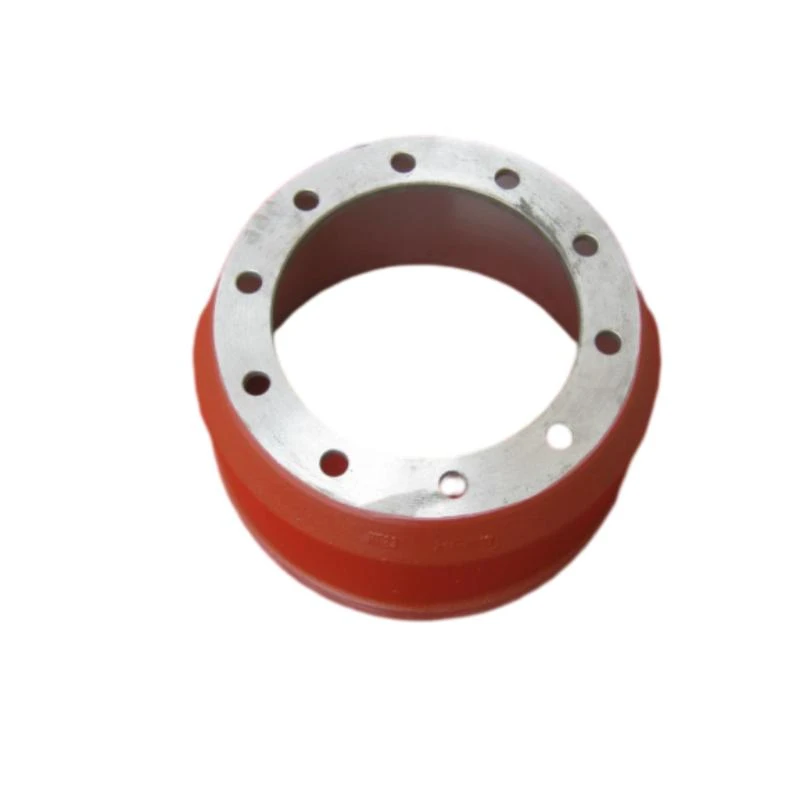Dec . 05, 2024 15:14 Back to list
do brake drums cool quickly
Do Brake Drums Cool Quickly?
When it comes to the safety and performance of vehicles, understanding the intricacies of the braking system is paramount. Among the various components that make up a car’s braking system, brake drums and their cooling properties play a crucial role. In this article, we will delve into how brake drums operate, why cooling is essential, and whether brake drums cool quickly enough during regular driving conditions.
Understanding Brake Drums
Brake drums are part of a drum braking system, which is commonly found in older vehicles and some modern ones that utilize rear drum brakes. These cylindrical components house the brake shoes and are integral in slowing or stopping a vehicle when force is applied. When the driver presses the brake pedal, hydraulic force pushes the brake shoes against the inner surface of the drum, creating friction and ultimately slowing the wheel.
This friction is essential for effective braking but generates significant heat in the process. As the brake shoes press against the drum, the friction leads to the conversion of kinetic energy into thermal energy, causing the brake drum's temperature to rise.
The Importance of Cooling
Cooling is vital to the performance of brake drums. If the temperature rises too high, several issues can arise. Excess heat can cause brake fade, a phenomenon where the braking power diminishes due to overheating. This can lead to longer stopping distances and impaired vehicle control. In severe cases, excessive heat can also warp the brake drum, leading to costly repairs and potential safety hazards.
To maintain optimal performance, brake components must dissipate heat efficiently. Effective cooling helps retain the integrity of the braking system and provides the driver with the confidence needed to operate the vehicle safely under various conditions.
Do Brake Drums Cool Quickly?
do brake drums cool quickly

The rate at which brake drums cool down after use can depend on several factors. Generally speaking, brake drums do cool relatively quickly after the application of brakes, but this cooling rate can vary based on circumstances such as ambient temperature, airflow, and the construction material of the brake drum.
1. Ambient Temperature and Conditions In cooler weather, brake drums may cool more rapidly due to the lower surrounding temperatures. Conversely, in hot conditions, such as during summer months or in a stop-and-go traffic situation, the cooling process may be slower.
2. Airflow Airflow plays a vital role in dissipating heat. When a vehicle is in motion, fresh air flows over the brake drums, helping to cool them down. However, if the vehicle is idling or stuck in traffic, this cooling effect is reduced, causing the drums to retain heat for a more extended period.
3. Material Composition The materials used in the construction of brake drums also impact their cooling rate. Some materials have higher thermal conductivity, allowing for quicker heat dissipation. For example, cast iron drums are more common and may retain heat longer than aluminum drums, which can cool more quickly due to their better thermal properties.
4. Frequency of Braking In situations where brakes are applied frequently, such as during heavy traffic or mountain driving, brake drums may not have sufficient time to cool down between applications. This repeated heating can significantly increase the operating temperature if cooling periods are insufficient.
Conclusion
Understanding the cooling properties of brake drums is essential for vehicle maintenance and safety. While brake drums do cool down relatively quickly under ideal conditions, various factors can influence their cooling rate. Drivers should be conscious of their vehicle's braking behavior, especially in situations that may lead to overheating. Regular inspections and proper maintenance can ensure that brake components function efficiently, providing reliable performance and enhanced safety on the road.
Ultimately, staying informed about your vehicle's braking system is crucial. Awareness can prevent potential issues related to overheating and ensure that you can respond quickly and safely in any driving situation. Remember, a well-maintained brake system is a cornerstone of vehicle safety.
-
Explore Japan: Ultimate Travel Guide & Authentic Experiences
NewsAug.19,2025
-
Your Brake Drum Man: Premium & Reliable Brake Drums for Sale
NewsAug.18,2025
-
ROR Web Development: Build Fast, Scalable, Secure Apps
NewsAug.17,2025
-
Scania Brake Drums: OEM Quality for Optimal Safety & Durability
NewsAug.16,2025
-
R.V.I: Advanced Remote Visual Inspection for Precision
NewsAug.15,2025
-
Discover HYUNDA: Innovative Vehicles, Equipment & Solutions
NewsAug.14,2025
